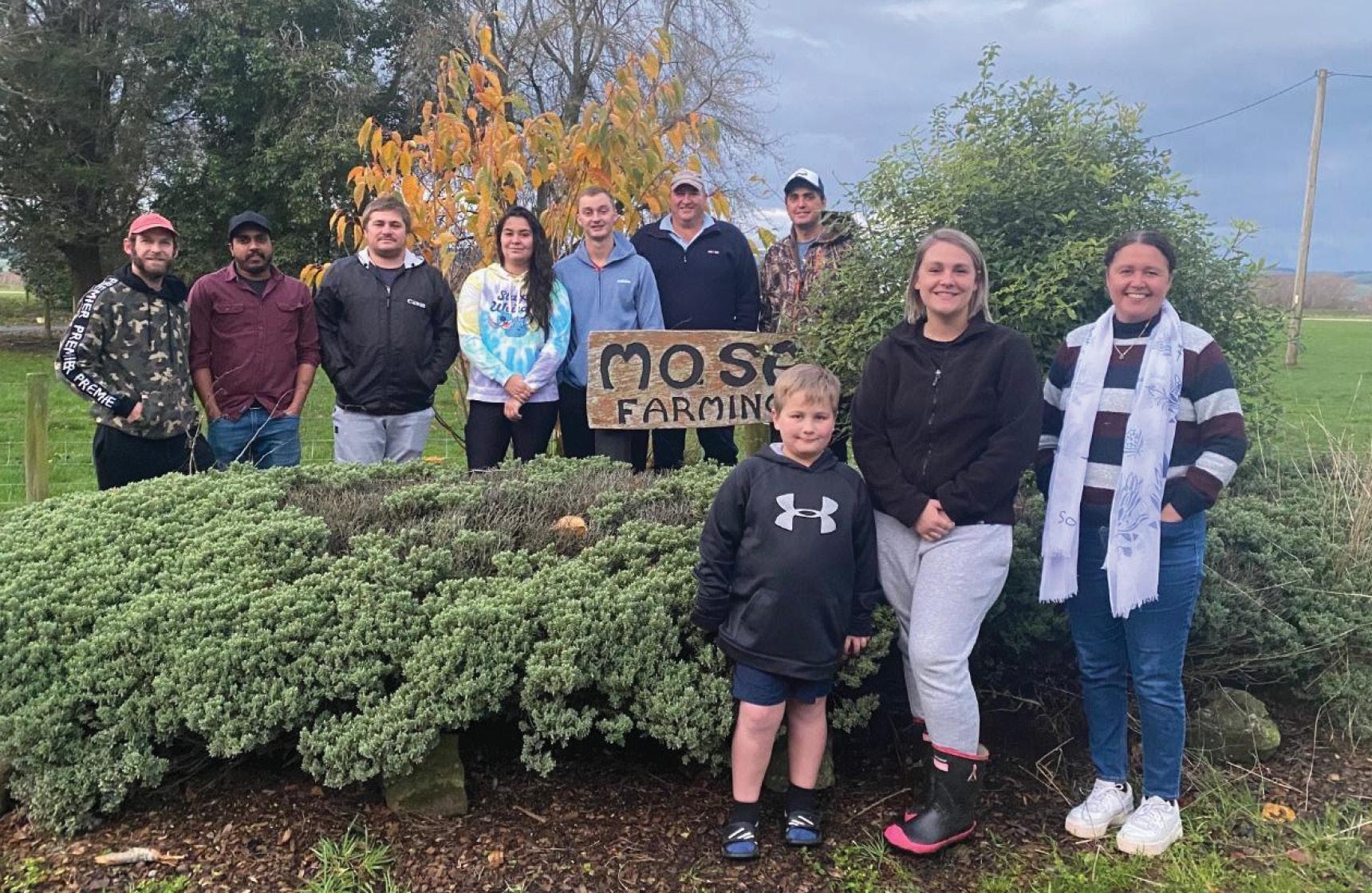
4 minute read
Top tips on taking care of your team
up to help get new tools and technology to reduce on-farm emissions to farmers more quickly. That is expected to include a new public private partnership and discussions are well advanced. Specialist climate-focused extension services will build on existing support available, to help producers adapt on-farm practices and adopt new technology.
We think emerging technologies have some exciting potential. However, we need to make sure that any use of inhibitors is managed well, so that potential risks to food safety, plant and animal health, and trade are minimised. The sector recognises the importance of putting in place the right rules to allow this to happen.
We’ve taken the first important step toward a new regulatory regime for inhibitors – from July 18 some inhibitors have been recognised as agricultural compounds and manufacturers have two years to transition into the new rules.
We are working through a process to ensure all relevant inhibitors are included in the new regulatory regime. These changes, along with the significant investments in research and development, will stand us in good stead as we face the challenges to come.
In future, food will fall into three categories: • commodity food - bargain price, stock-standard, run-ofthe-mill, ‘cheap’ • molecular food – food grown through industrial fermentation or cell culture systems • ‘Modern Regenerative Food’ – high value, nutritious food, ethically produced with a sustainable environmental footprint.
The first is a race to the bottom of price. In the second, we hold no competitive advantage, and, again, it will be commoditised. But, with innovation in our farming system to reduce our environmental footprint, NZ agriculture could be the definition of the third.
Of course, the stakes are high but with our history of innovation and with the building blocks already in place, we are well-placed to continue leading the field. I’m not saying this is easy. If it was, everyone would be doing it already. But in the words of Henry Ford: “I am looking for a lot of people who have an infinite capacity to not know what can’t be done”.
• Dr John Roche is the Chief Science Adviser at the Ministry for Primary Industries. BUSINESS DAIRYNZ
Supporting a farm’s workforce has huge benefits, writes Guy Michaels.
Iwas pleased to see a Southland dairy farming couple recognised at the Primary Industries Good Employer Awards recently.
Annalize and Stefan du Plessis are 50:50 sharemilkers on a property milking 700 cows and contract milk 600 cows on another local farm.
The du Plessis’ do lots of good things to create a great workplace, including being flexible about working hours and leave.
Annalize and Stefan ensure their team have plenty of time off during quieter periods. Staff also have input into when they work, as they’re part of developing the roster.
Farm teams are now recovering from calving, with some having worked particularly hard due to staff shortages. Taking time off is important for us all to stay well – mentally and physically – especially after stressful periods.
Annalize and Stefan also say it’s important to have good systems and routines in place to reduce inefficiency. This includes having the right machinery and equipment so jobs can be done coutinued pg30
Annalize and Stefan du Plessis with their farm team family: Back from left Stefan Burger, Arun Aravind, Zander Ferreira, Kara Toimata, Armand Fourie, Stefan du Plessis, Carlo School. Front from left - Zackery Ferreira, Lee Louw, Annalize du Plessis. Absent from photo: Jancke Burger.
faster, helping create a good work environment with greater flexibility for staff.
Another option to keep working hours manageable for a lot of farms is flexible milking.
DairyNZ research indicates that shifting from twice-a-day milking to ‘three-in-two’ reduces labour time and improves body condition score (BCS), reproduction and lameness.
It does result in a small decrease in milk production.
Three-in-two milking can also be a good option if you’re down a staff member, or want to improve cow BCS in summer or autumn. I’ve also seen some farms use flexible milking to provide staff with time off over Christmas and New Year.
Supporting a great workplace can also involve some simple gestures.
Annalize and Stefan recognise staff birthdays with a day off, a present and a cake, and even warm meals.
The du Plessis’ have an open-door policy and encourage their team to come and chat to them about any concerns.
They also work hard to help new staff settle in, encouraging them to join a local sports club or get involved in community activities like Young Farmers.
With calving now behind us, now is a great time to catch up with your farm team to find out how they’re feeling, and ask if there’s anything more you can do to continue supporting them.
• Guy Michaels is DairyNZ
Southland/South Otago regional leader.
TOP tips
to help farm staff feel valued
DairyNZ research shows that farm staff value: • regular one-on-one catch-ups and team meetings • being able to share their views and ideas • rosters that provide enough time off to avoid burnout, especially at busy times • health, safety and wellbeing being a priority • being regularly told they are doing a good job • having warm and comfortable accommodation • having a clear set of expectations • competitive pay • opportunities for upskilling or training.
More? visit www.dairynz.co.nz/people










